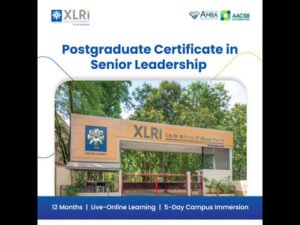Last updated on June 11th, 2024 at 05:56 am
In today’s rapidly evolving business landscape, the importance of strong leadership cannot be overstated. Companies that invest in cultivating effective leaders at all levels tend to outperform their competitors, adapt more swiftly to market changes, and foster more innovative and resilient organisational cultures. The cornerstone of this success is a robust leadership development program. This comprehensive article will delve into what is leadership development, its significance, and strategies for how to develop leadership skills.
What Is Leadership Development?
The process of improving a member of an organisation’s leadership capabilities is known as leadership development. A vital component of any leader’s work and success is the development, application, and refinement of good leadership. Mastering those essential skills is the process of becoming a better leader.
By concentrating on leadership development, you acquire the skill sets required to carry out leadership duties more effectively. Leadership development cannot be approached in a one-size-fits-all manner. This is especially true for the best approach to boost leadership performance, which is through coaching. A significant portion of the value of leadership coaching comes from its customised strategy that makes use of one-on-one relationships, personalised goals, and assessments.
The goal of leadership development is to help leaders—from C-suite executives to individual contributors—better lead and enhance their leadership abilities to meet changing needs. Proficient leaders possess the ability to inspire not only those under their formal supervision but also their peers and those under their informal authority.
Why Is Leadership Development Important?
Understanding why is leadership development important is crucial for organisations striving to maintain a competitive edge. Here are several key reasons:
- Enhances Organisational Performance: Effective leadership directly correlates with improved organisational performance. Leaders who are well-trained can make strategic decisions that drive growth and efficiency.
- Fosters Innovation: Leaders who are equipped with the right skills can foster a culture of innovation. They encourage creative thinking and are more likely to implement groundbreaking ideas.
- Increases Employee Engagement: Strong leaders can inspire and motivate their teams, leading to higher levels of employee engagement and satisfaction. Engaged employees are more productive, loyal, and less likely to leave the organisation.
- Ensures Succession Planning: Leadership development is essential for succession planning. It ensures that there are capable leaders ready to step into critical roles as they become available.
- Adapts to Change: In an ever-changing business environment, leaders who are adaptable and skilled at managing change can help their organisations navigate through transitions more smoothly.

How to Develop Leadership Skills
Developing leadership skills is a multifaceted process that requires a combination of formal education, practical experience, and personal growth. Here are several strategies on how to develop leadership skills:
- Pursue Formal Education: Enrolling in programs like the Postgraduate Certificate in Senior Leadership provides structured learning opportunities. These programs cover essential topics such as strategic planning, organisational behaviour, and leadership ethics.
- Seek Mentorship: Learning from experienced leaders can provide invaluable insights and guidance. Mentorship programs allow aspiring leaders to gain practical advice, feedback, and support from those who have successfully navigated the leadership landscape.
- Gain Practical Experience: On-the-job experience is crucial for leadership development. Taking on challenging projects, leading teams, and stepping out of one’s comfort zone can help develop critical leadership competencies.
- Engage in Continuous Learning: The best leaders are lifelong learners. Staying updated with the latest trends, attending workshops, reading leadership books, and participating in webinars are excellent ways to keep one’s skills sharp.
- Develop Soft Skills: Leadership is not just about technical skills; it’s also about interpersonal skills. Effective communication, emotional intelligence, empathy, and conflict resolution are vital for successful leadership.
- Solicit Feedback: Regularly seeking feedback from peers, subordinates, and superiors can help leaders identify areas for improvement and make necessary adjustments to their approach.
Conclusion
In conclusion, leadership development is a critical investment for any organisation looking to thrive in today’s competitive business environment. Understanding what is leadership development and why is leadership development important can provide the foundation for creating effective leadership programs that drive organisational success. By focusing on how to develop leadership skills, individuals can enhance their ability to lead and inspire others.
For those looking to take their leadership capabilities to the next level, the Postgraduate Certificate in Senior Leadership offered by Imarticus Learning is an excellent choice. This program provides the tools, knowledge, and experiences necessary to become a transformative leader. Visit Imarticus Learning today to learn more and take the first step towards empowering tomorrow’s leaders.

